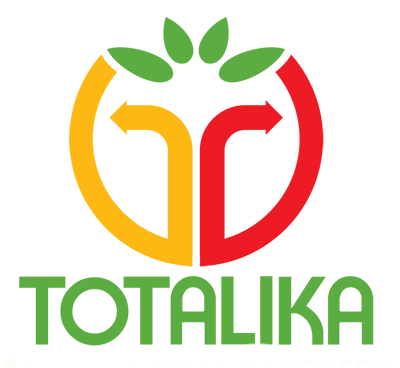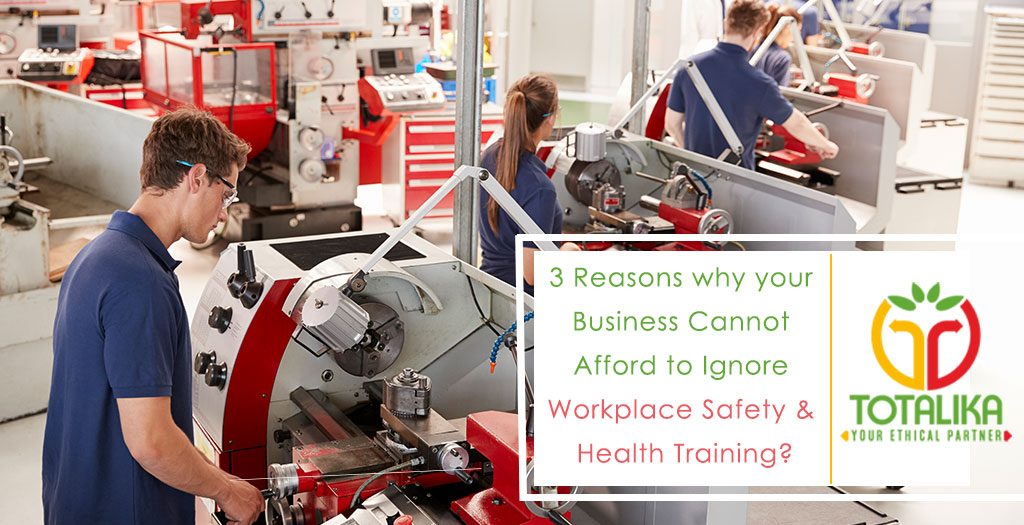3 Reasons why your Business Cannot Afford to Ignore Workplace Safety & Health Training
Ignoring health and safety training at your workplace is like throwing your profits out of the window. Here are the top three reasons why businesses cannot afford to ignore health and safety training.
One of the most neglected aspects of running a business is health and safety. Businesses of all sizes – from startups to large corporates – fail to focus on the safety of their employees. Workplace safety is mostly an afterthought and never a crucial part of the picture.
There are plenty of reasons why business owners don’t emphasize workplace safety. This is because they believe that workplace accidents are things that occur to others and not on their premises. This is a grave mistake, as a single workplace accident can derail all that you have built over the years.
Health and safety not only protects your business from accidents but also keeps it profitable. It ensures everything runs smoothly as possible, improving your bottom line. Here, in this post, we take a look at the importance of workplace safety and the top reasons why businesses cannot afford to ignore it.
The Business of Being Safe

Everyone wants to be safe, irrespective of whether they are at home, in the workplace, or out on the streets. No one wants to meet with an accident voluntarily. Safety is one basic right that everyone wants at all times.
When it comes to businesses, ensuring the health and safety of the employees is a top concern.
The employer must protect all his employees from workplace accidents and injuries while they are on the job. Just like an employer provides work training to all employees, the employer must provide health and safety training to employees.
Advantages of Investing in Workplace Safety

While the advantages of investing in workplace safety are many, here’s a quick rundown of the top benefits:
- Increase in employee safety
- Reduction in absences and sick leave
- Reduction in operating cost
- Boost in public perception of the business
- Increase in brand value
- Reduction in employee attrition
- Increase in productivity and overall profits
- Save insurance and other legal costs
Now, that you understand workplace safety is not a choice, but mandatory, let’s take a look at why you cannot afford to ignore the health and safety training of your employees.
Investing in Workplace Health and Safety Training

When you invest in ongoing workplace health and safety training, your employees are no more a liability but an asset to the company. They have the required knowledge to carry out all the operations safely and efficiently. They learn the right way to use a piece of equipment, thereby preventing workplace accidents. Additionally, they also learn to use the various facilities of the company correctly, thereby protecting themselves and their colleagues from workplace accidents.
Workplace safety is inversely proportional to the operational cost of the business. With an increase in workplace safety, the operational cost of the business decreases, and vice versa.
Here are the Top 3 Reasons why Businesses cannot afford to Ignore Health and Safety Training:
1. To avoid Productivity Loss

Several scientific studies establish the link between an employee’s happiness and the overall productivity of the business. If an employee feels well cared for at the workplace, they are more likely to focus on the jobs at hand.
When an employee is constantly worried about his safety at work, he/she cannot focus on the assigned task whole-heartedly. This leads to a drop in productivity and reduces work efficiency.
Happy employees are the most productive. When employees are happy and feel comfortable in the workplace, there is a significant shift in morale and attitude. This leads to improved loyalty and reduces staff attrition.
All this translates to better work output and quality.
2. To Avoid Financial Losses

By focusing on workplace health and safety training, businesses can also enjoy financial rewards. Poor safety and health conditions at work cause employees to take frequent leaves. This means, as a business, you have to pay employees even when they are not at work, and also provide compensation for the medical bills incurred by employees.
The financial repercussions are bigger when a workplace accident occurs. Employee compensation, legal fees, fines, and penalties are some of the expenses you have to bear.
All this could be avoided by investing in health and safety training of employees.
3. To Avoid Damaging the Reputation of the Business

Building the reputation of your business is hard work. It takes years and years. In today’s globalized world, international businesses will NOT work with partners who have poor safety standards.
Here’s a recent example. Lesotho, a small landlocked country in Southern Africa, recently made headlines when it was discovered that women employees at a jeans manufacturing facility in the country were subjected to sexual harassment. Levi is the global brand that sources jeans from this factory. Following this case, Levi is in the process of terminating its contract with a particular local partner.
As you can see, failing to implement workplace health and safety is not only damaging to the employees but is also extremely detrimental to your overall business.
Global brands look for local partners who maintain excellent health and safety records. Additionally, consumers today don’t want to choose products from brands that have poor safety records.
A single workplace accident or mishap can ruin your entire business.
Workplace accidents can damage companies’ reputations in an instant. It generates negative publicity that is difficult to overcome, affecting your brand’s equity, goodwill, and market value.
Invest in Progress
When you invest in workplace health and safety training, you are investing in progress. With a strong safety and health system in place, all your employees are well looked after, which in turn contributes to the success of your business.
For customized health and safety training for your workplace, get in touch with Team Totalika, India’s top health, and safety experts.

